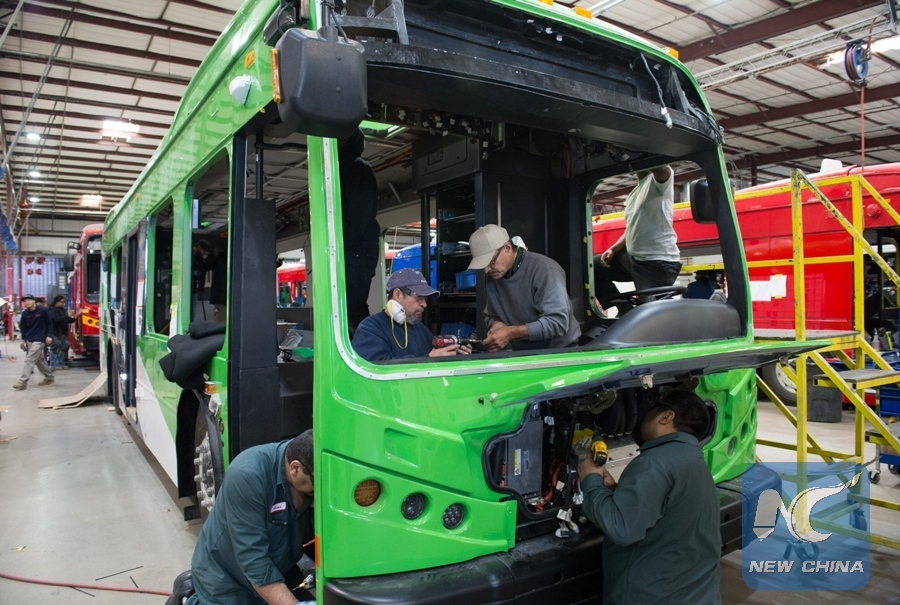
People work at the assembly workshop at the BYD factory in Lancaster, the United States, March 23, 2017. As the world's largest manufacturer of rechargeable batteries and electric vehicles, the Chinese company BYD established its factory in Lancaster, California in May 2013. (Xinhua/Yang Lei)
SAN FRANCISCO, Dec. 18 (Xinhua) -- China's automaker BYD is poised to expand in California with a new service hub underway in San Francisco Bay Area with the encouragement of the state's new clean transit regulation.
BYD, a major battery storage manufacturer in the world, is building a service hub in the Bay Area to offer solar plus storage with a power purchase agreement (PPA) to cover the cost of charging infrastructure and remove demand charges, a company spokesperson said on Tuesday.
The company has purchased an additional 150 acres of land near its manufacturing plant in Lancaster, California, and is planning service and maintenance centers across the United States.
BYD's ambitious plan is encouraged by California's new rule to transition the state's all public transit fleets to zero-emission by 2040.
California Air Resources Board, the state's clean air agency, voted on Friday to adopt the regulation, under which public transit agencies are allowed to buy only electric buses by 2029.
The agency expects the deployment of zero-emission buses to accelerate rapidly in the coming years -- from the current 153 buses to 1,000 by 2020. Altogether, public transit agencies operate about 12,000 buses in California.
The new rule has been applauded by BYD. "With BYD's latest investments in our Lancaster plant we have the capacity to produce 1,500 buses a year," said Sheila Given, the spokesperson for BYD. "Like any growing market, we expect competition to grow in the manufacturing of zero-emission buses."
The company has partnered with Generate Capital, a clean-energy financing company, to create a leasing program to help accelerate the state's transition to all electric bus fleets.
This leasing program provides the public transit agencies with another option beyond normal government financing used for infrastructure and other capital improvements, said BYD.
Electric-battery buses depending on size and specifications can range from 500,000 U.S. dollars to around 1 million dollars. The Center for Transportation and the Environment estimates the average cost at 750,000 dollars.
So far, BYD has delivered 79 electric buses to transit authorities in California with another 122 orders on the way.
The company currently has 19 public transit entities in the state.

